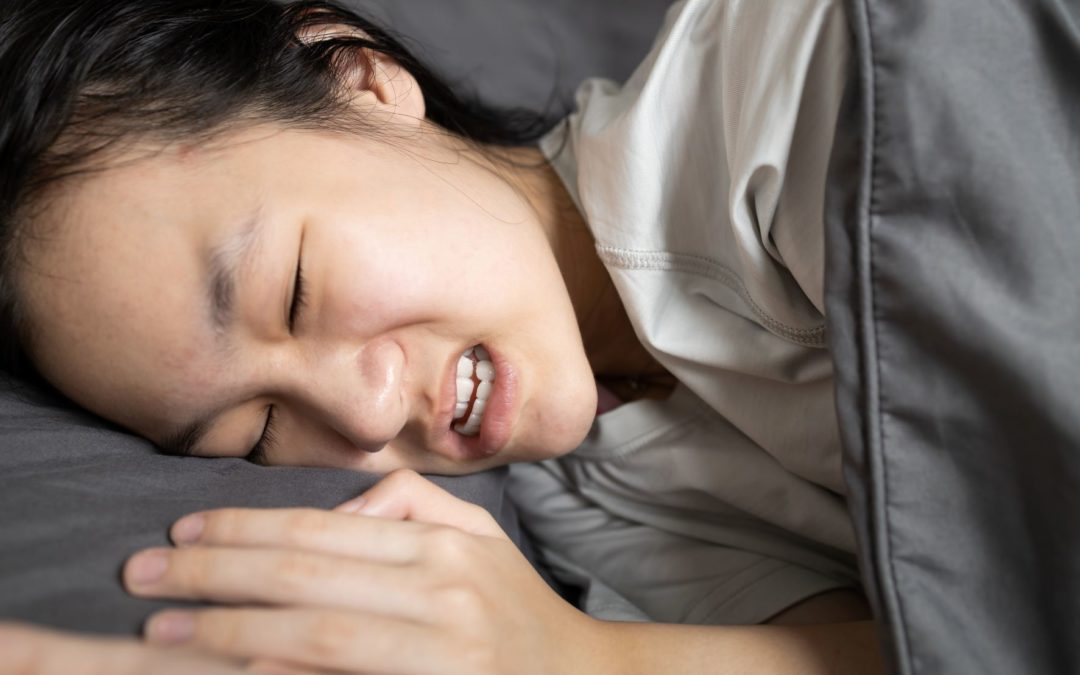Sleep Apnea
Obstructive sleep apnea is diagnosed as the condition where a sleeping person develops an obstructed airway, resulting in oxygen being cut off. As such, people experiencing sleep apnea often wake up many times through the night gasping for breath. Sleep apnea patients therefore almost always have interrupted sleep every night.
One of the most common reasons why one’s airway becomes obstructed at night is due to a misaligned jaw position, resulting in an incorrect tongue position that blocks the airway. As such, if you experience both TMJ disorder and sleep apnea, it is possible that treating TMJ disorder will treat your sleep apnea condition as well. As such, instead of immediately turning to over-the-counter medicines to alleviate or treat your sleep apnea, it might be a better idea to first determine whether your sleep apnea is caused by TMJ disorder. If that is the case, then TMJ treatment will be the best option moving forward.
Night Headaches
It is extremely common for a misaligned bite to cause a strain in muscles that mimic a bad migraine. As such, many TMJ disorder patients find that they also experience some pain in their forehead, back of the head, as well as neck area.
Bruxism
Bruxism occurs when one unconsciously grinds or clenches their tooth unnecessarily. This can happen either during the day or even the night as we sleep. As such, it can be tricky for one to self-diagnose bruxism. If your partner has mentioned or complained about you grinding or clenching your teeth while you sleep, then it is a likely sign that you might have bruxism.
Since bruxism involves a constant grinding motion on your teeth, it can cause significant damage to both your teeth as well as your TMJ. While bruxism doesn’t have much effect on the quality of sleep you get, it can cause other problems such as dental issues as well as headaches.
When to Seek Help
If you have been experiencing TMJ-related sleep problems for an overly-long period or that the symptoms you experience are worsening, then it is highly recommended for you to seek professional advice from expert institutions like Head Pain Institute. Here at Head Pain Institute, we are highly experienced in treating TMJ and know what are the right steps to take so you can enjoy a pain-free sleep again. Over the years, Head Pain Institute has provided TMJ treatments to over a hundred satisfied customers. Get in touch with us today at 480-945-3629 to start your treatment journey.




